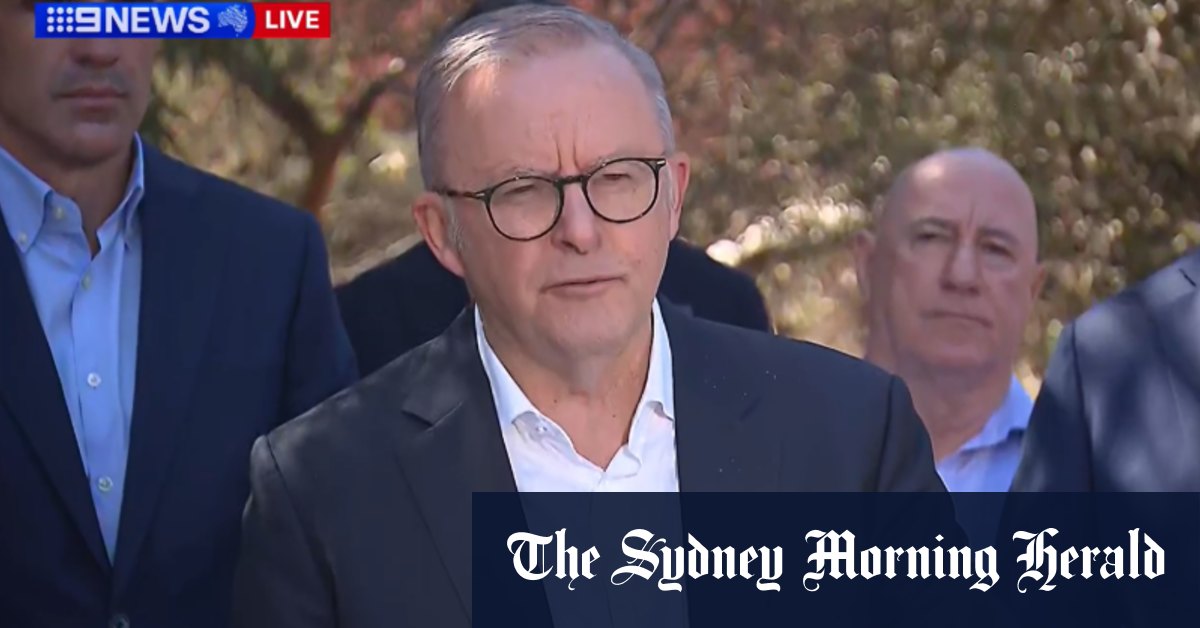Australia
Hatchet job on PM betrays prejudice

The Prime Minister’s Achievements and the Politics of Criticism
The article by Parnell Palme McGuinness, titled “I misjudged PM’s all-too-human vibe,” has sparked a lively debate about the Prime Minister’s performance and the tone of political criticism in Australia. Chris Rivers of Port Macquarie argues that McGuinness’ piece is driven by jealousy and prejudice, downplaying the PM’s significant achievements and the stability he has brought to the country. Rivers highlights the PM’s skillful negotiating, which has moved Australia to a stronger position than it was under the previous Coalition government. He draws a comparison to former U.S. President Donald Trump, suggesting that McGuinness’ tone mirrors the divisive rhetoric often associated with Trump. Rivers ends with a note of praise for the PM, congratulating him on his successes.
The Triviality of Personal Attacks in a World of Real Challenges
Bill Johnstone of Blackheath questions the relevance of McGuinness’ personal attack on Anthony Albanese, especially when the world faces much bigger challenges. He points to the chaos caused by Trump’s executive orders, from banning paper straws to disruptive foreign policy moves, and contrasts this with McGuinness’ focus on trivial issues, such as Albanese’s decision not to participate in a film shoot 20 years ago. Johnstone argues that such criticism is misplaced when global stability is under threat, and that Albanese’s leadership deserves more nuanced evaluation.
Competence and Racism in Australian Politics
Tony Simons of Balmain criticizes McGuinness for what he describes as a “cruel hatchet job” on the Prime Minister. He suggests that her energy would be better spent criticizing Peter Dutton for his alleged use of racist tropes, particularly in the debate over the Indigenous Voice to Parliament. Simons praises the Albanese government for its competence, contrasting it with the perceived ineptitude of the previous Morrison government, which he accuses of secrecy and mismanagement. He also highlights the legacy of high inflation left by the Coalition, implying that the current government has inherited significant challenges.
Healthcare Reforms and the Neglect of Oral Health
Allan Gibson of Cherrybrook comments on the ALP’s $8.5 billion plan to boost bulk-billing, a policy aimed at making healthcare more accessible. While he acknowledges the importance of increasing access to general practitioners, especially in regional areas, he expresses disappointment that oral healthcare remains excluded from the universal healthcare system. Gibson argues that oral health is intimately linked to overall well-being and that its neglect represents a missed opportunity for comprehensive reform. He calls on both major parties to address this gap in the healthcare system.
The Challenges of Private Health Insurance
Peter Miniutti of Ashbury raises concerns about the growing costs of private health insurance, particularly the increasing gap fees for specialist services. He notes that many Australians are opting out of private insurance due to these costs, which undermines the dual system of public and private healthcare. Miniutti calls on both political parties to address this issue, emphasizing the need for reforms that make private health insurance more affordable and sustainable. He believes that the ALP’s focus on bulk-billing, while helpful, does not address the broader challenges faced by those relying on private cover.
Citizenship Ceremonies and Political Momentum
Russell Stevens of Jannali critiques the idea that citizenship ceremonies are a form of vote-buying, particularly the suggestion that new citizens will overwhelmingly support Labor. He dismisses the notion that a small increase in voter numbers will secure another term for Anthony Albanese, pointing out the minuscule percentage of new voters relative to the total electorate. Stevens questions the assumption that citizenship ceremonies can be leveraged for political gain, suggesting that such strategies are unlikely to have a significant impact on election outcomes. He argues that political success requires more substantial engagement with voters than symbolic gestures.
This summary captures the diverse perspectives of the letter writers, reflecting both support for and criticism of the Prime Minister, concerns about healthcare and private insurance, and skepticism about political strategies.











